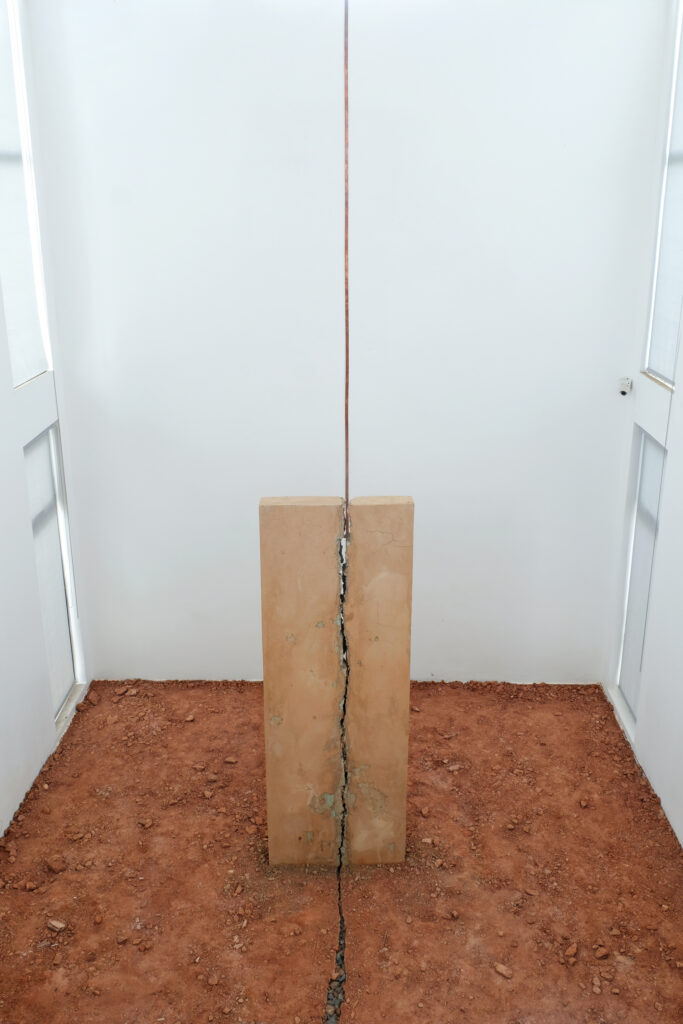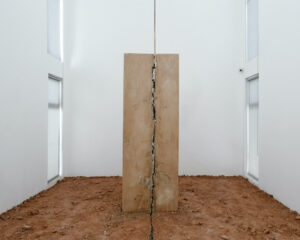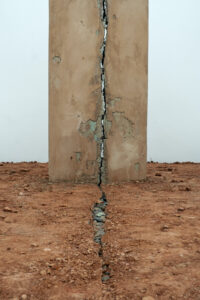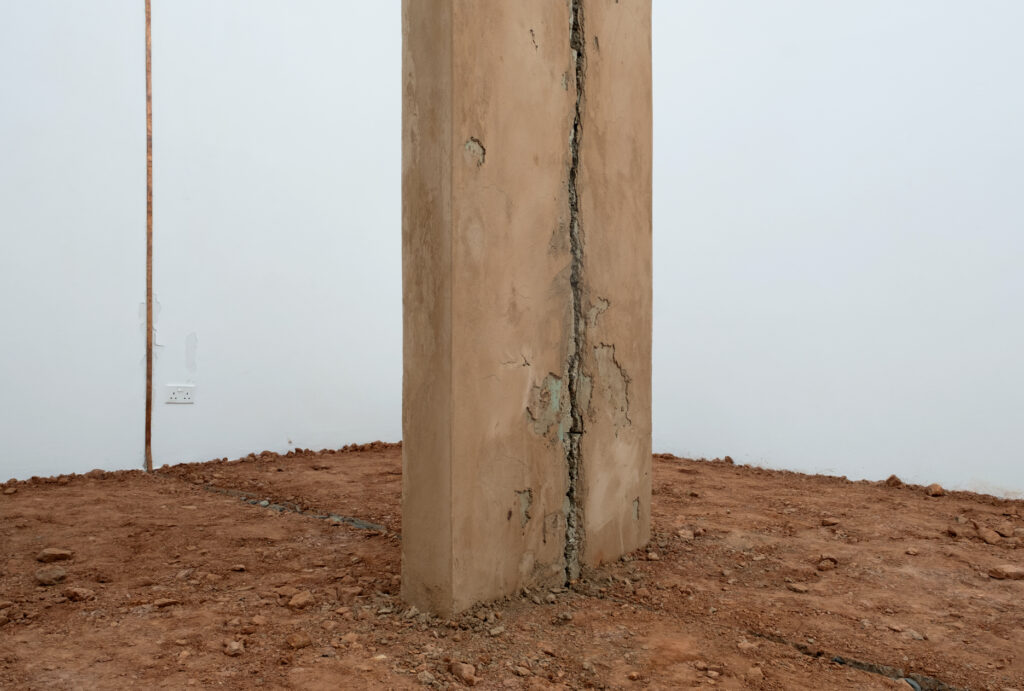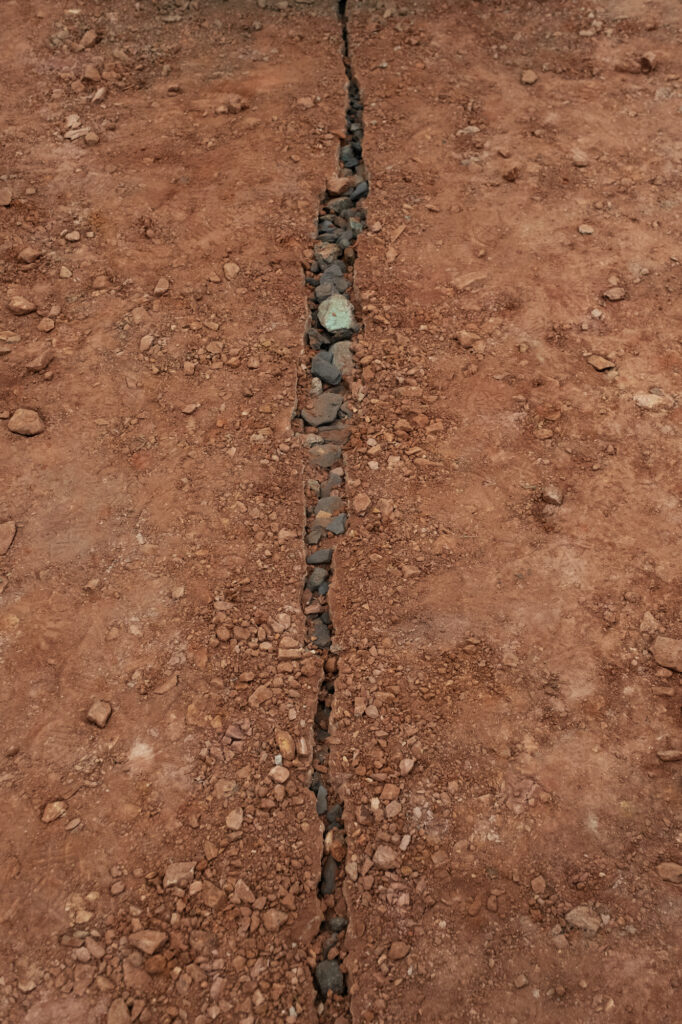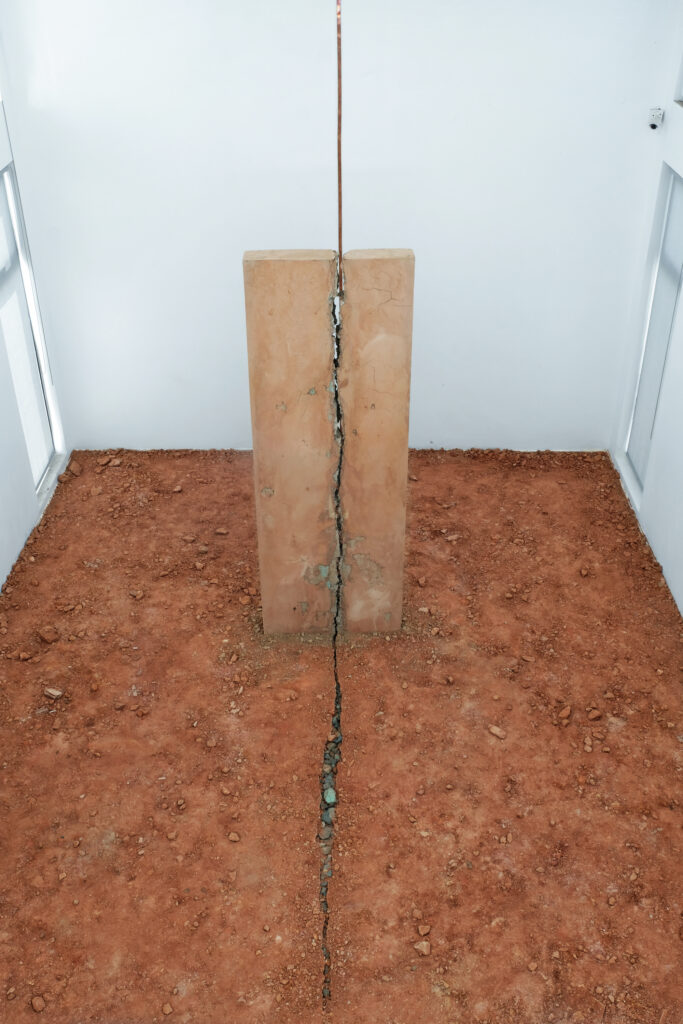An exhibition by Christian Danielewitz
Faultlines explores the social economic and environmental impacts of resource exploitation in Kankoyo Township in Mufulira through the lens of Danish visual artist Christian Danielewitz. The township rich in copper, symbolizes the stark contrast between the wealth generated by these resources in the Global North and the impoverished conditions of local communities in the Global South.
Danielewitz has dedicated over a decade to researching these disparities. His work highlights the environmental degradation in Kankoyo caused by multinational mining corporations. Homes and land in Kankoyo are severely polluted, with harmful sulfur dioxide emissions from nearby copper smelting furnaces contributing to a suffocating environment. This pollution represents the broader Issue of how capitalist principles treat the world as an infinite resource and waste repository.
In his sculptural installation Faultlines, Danielewitz uses materials like brick, soil, and found mineralized rocks to recreate the cracked and polluted landscape of Kankoyo. The installation’s long piece of copper symbolizes the elusive benefits of rising copper market prices for local communities. Through his work, Danielewitz questions the sustainability and desirability of trickle-down economics, which often leaves places like Kankoyo to suffer the consequences of speculative foreign direct investment controlled by private equity.
Danielewitz work critiques the double standards in corporate environmental practices, highlighting the contrast between strict adherence to environmental regulations in the Global North and the disregard for such standards in the Global South. This hypocrisy leads to irreversible ecological damage, threatening human life. His art draws attention to the “slow violence” described by Rob Nixon, where gradual and dispersed environmental destruction is often overlooked.
Faultlines is not just about reporting these issues but about challenging the conditions and means of production. Danielewitz emphasizes human solidarity over complicity in exploitation. He acknowledges the limitations of art in solving social problems but uses it to focus attention and inspire change.
By representing Kankoyo’s struggles through his art, Danielewitz calls for systematic change and greater corporate accountability. He urges us to see beyond the immediate benefits of resource extraction and consider the long-term impacts on communities and the environment. “Faultlines” serves as a powerful reminder of our world’s interconnectedness and the urgent need for a more equitable and sustainable approach to development.
